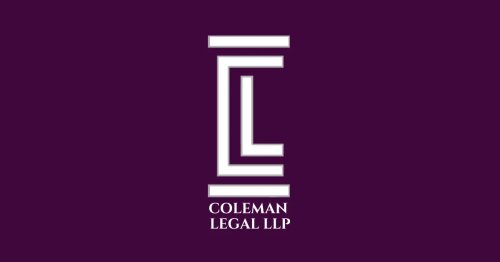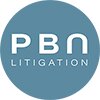Best State, Local, and Municipal Law Lawyers in Dublin
Share your needs with us, get contacted by law firms.
Free. Takes 2 min.
List of the best lawyers in Dublin, Ireland
About State, Local, and Municipal Law in Dublin, Ireland
State, Local, and Municipal Law in Dublin, Ireland, encompasses the legal framework governing the capital city and its surrounding areas. These laws regulate the daily lives of Dubliners, addressing issues ranging from zoning and land use to public safety and local governance. Given that Dublin is the largest city in Ireland, its legal structure needs to accommodate a dynamic, diverse population, while aligning with both national laws and EU directives. These laws are crafted and enforced by local governmental bodies, councils, and municipal authorities, influencing everything from housing regulations to waste management.
Why You May Need a Lawyer
There are numerous scenarios in which individuals or businesses in Dublin might require legal assistance in matters related to State, Local, and Municipal Law. Common situations include disputes over property zoning and development permissions, issues with local council tax or fees, or difficulties navigating the complexities of local business regulations. Additionally, you may need representation if you're facing enforcement actions by municipal authorities, like violations of building codes or licensing laws. Solicitors specialized in this field can offer crucial guidance and ensure your rights are protected under Dublin’s specific legal framework.
Local Laws Overview
State, Local, and Municipal Law in Dublin covers various areas critical to the city's administration and resident welfare. These include regulations on land use and zoning, which determine how properties can be developed and used; environmental laws that address issues such as waste management and pollution control; and housing regulations, which are essential in a city facing housing shortages. Additionally, public safety regulations cover everything from noise ordinances to street maintenance. Understanding these laws is vital for compliance and aiding in effective civic engagement.
Frequently Asked Questions
What is the role of Dublin City Council in local law?
Dublin City Council is responsible for the governance and administration of municipal functions in Dublin. This includes housing, planning, roads, water supply, and waste management services.
How can I find out if my property subject to specific zoning restrictions?
The Dublin City Development Plan outlines zoning regulations. You can consult this document or seek guidance from a municipal lawyer to understand these restrictions better.
What should I do if I have a dispute with my local council?
First, try to resolve the issue directly with the council. If that fails, consider seeking legal advice to explore other options, such as mediation or taking legal action.
Can I challenge a parking ticket issued by local authorities?
Yes, you can contest a parking ticket by following the appeals process outlined by Dublin City Council. If necessary, consult a lawyer for assistance.
What steps are involved in applying for a business license in Dublin?
Applications typically involve submitting detailed plans and compliance documents to your local licensing authority. Consider consulting a lawyer to ensure all legal requirements are met.
Is there a legal requirement for noise control in residential areas?
Yes, there are standards enforced by Dublin City Council to control noise pollution in residential and business areas within the city limits.
How can I report a breach of environmental law?
You can report violations, such as illegal dumping or pollution, to the Environmental Protection Agency (EPA) or Dublin City Council.
What assistance is available for housing legal issues in Dublin?
The Residential Tenancies Board (RTB) can offer assistance in resolving disputes between landlords and tenants. Legal aid services can also provide support, depending on your circumstances.
How does local law affect emergency services in Dublin?
Local laws ensure the efficient functioning of emergency services by regulating their operations, response protocols, and funding through local government policies.
Who enforces municipal building regulations?
Enforcement typically falls under the jurisdiction of Dublin City Council, which ensures compliance with building codes and safety standards.
Additional Resources
For additional guidance, consider reaching out to the following organizations:
- Dublin City Council: The governing body responsible for municipal administration, offering information on local services and regulations.
- Citizens Information: This service provides general information and advice on your rights and obligations regarding local laws.
- The Law Society of Ireland: Offers resources and referrals for individuals seeking legal representation or advice.
- Free Legal Advice Centres (FLAC): Provides free and confidential legal advice clinics throughout Dublin.
Next Steps
If you require legal assistance in matters related to State, Local, and Municipal Law, the first step is to gather all relevant documentation and details about your issue. Consider consulting with a solicitor specializing in local law to discuss your case and explore your options. You may also want to reach out to any relevant local bodies or services, as they can provide further direction and support. Remember that understanding your rights and obligations is essential in navigating legal matters effectively.
Lawzana helps you find the best lawyers and law firms in Dublin through a curated and pre-screened list of qualified legal professionals. Our platform offers rankings and detailed profiles of attorneys and law firms, allowing you to compare based on practice areas, including State, Local, and Municipal Law, experience, and client feedback.
Each profile includes a description of the firm's areas of practice, client reviews, team members and partners, year of establishment, spoken languages, office locations, contact information, social media presence, and any published articles or resources. Most firms on our platform speak English and are experienced in both local and international legal matters.
Get a quote from top-rated law firms in Dublin, Ireland — quickly, securely, and without unnecessary hassle.
Disclaimer:
The information provided on this page is for general informational purposes only and does not constitute legal advice. While we strive to ensure the accuracy and relevance of the content, legal information may change over time, and interpretations of the law can vary. You should always consult with a qualified legal professional for advice specific to your situation.
We disclaim all liability for actions taken or not taken based on the content of this page. If you believe any information is incorrect or outdated, please contact us, and we will review and update it where appropriate.











